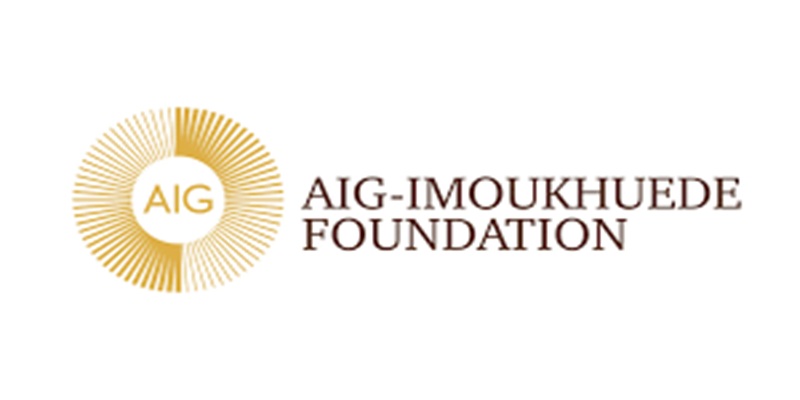Broadcasting
FG Tasks NBC Governing Board Members on Digital Transition

Alh. Lai Mohammed, Minister of Information and Culture, has charged the newly reconstituted Governing Board of the National Broadcasting Commission, NBC to ensure a successful transition of the broadcast industry from analogue to digital broadcasting, through the Digital Switch Over (DSO) project.

The Minister gave the charge while inaugurating the board members of the National Broadcasting Commission, NBC in Abuja.
He reminded the board that its role is to formulate policies, and not to engage in the day-to-day running of the Commission and to evolve strategic ways of supporting the commission to effectively deliver its mandate.
Mohammed also charged the board to always synergize with the management of the Commission for optimal service delivery in line with the broadcast Code and other extant regulations guiding them.
“Your appointment is a call to service, and I am sure you will all live up to expectations. Please note that the role of the board of any organization is to formulate policies, and NOT to engage in the day-to-day running of the organization.
“I therefore enjoin you all to maintain a cordial relationship with the Chief Executive Officer of the Commission to engender a smooth working relationship.
“The most important task facing NBC today is to successfully transition the broadcast industry from analogue to digital broadcasting, through the Digital Switch Over (DSO) project. While the NBC is the implementing agency for this all-important project, a Ministerial Task Force on DSO, under my chairmanship, is driving the project.’’
On their part, the Minister said the Ministry has ambitious plan to ensure timely completion the DSO plan.
“We have an ambitious plan to fast-track the DSO this year by launching it in at least two states every month. Unfortunately, we have not been able to meet this target. But we are working hard to resume the DSO launch as soon as possible. I urge you all to buy into this project to ensure that NBC is able to deliver on what we perceive as a legacy project – because it will change the face of broadcasting in Nigeria’’.
Recall that the Ministry had launched the pilot phase of the project in Jos, Plateau State, on 30 April 2016 and, since then, we have launched the DSO here in the Federal Capital Territory, as well as in Kwara, Kaduna, Enugu, Osun, Lagos and Kano States.
As the 2023 general elections draw closer, he urged the board to work together with the Commission to ensure that its licensees adhere strictly to the tenets of the Broadcasting Code, as the NBC will come under increasing pressure to step up its regulatory role of preventing some broadcast stations from throwing caution to the wind in the course of inciting, incendiary and unprofessional broadcasts.
Earlier in her welcome Address, Dr. Ifeoma Anyanwutaku, the Permanent Secretary in the Ministry, urged the board to always make itself available to the management of the Commission to effectively discharge its mandate to the Nigeria people with multi-ethnic and religiously diverse country.
She also cautioned them to be wary of the fifth columnists who are most likely to exploit any fault lines made by the media, especially in this era of fake news and misinformation.
Responding, the Director General of the Commission, Balarabe Ilelah assured the Minister that that the board would not disappoint the nation and also promised they would try as much as possible to assist the Commission to achieve its desired objectives.
The board has Hon. Bashir Omolaja as Chairman. Other members, who represent various interests as stipulated by the NBC Act, include Mr. Wada Asab Ibrahim, Mr. Iheanyichukwu Azubike Dike, Mrs. Adesola Oyinloye Ndu and Mr. Olaniyan Olatunji Badmus.
Also on the Board are Mr. Bashir Ibrahim, Mr. Obiora Ilo, Mr, Ahmad Sajo, Engr. Bayo Erikitola, a representative of the State Security Service, a representative of the Federal Ministry of Information and Culture as well as the Director-General of the Commission.
Broadcasting
US invests $115m in counter-drone tech for World Cup security


Drone
The US Department of Homeland Security (DHS) will invest $115 million in counter-drone technology to safeguard the 2026 FIFA World Cup and events marking America’s 250th independence anniversary, creating a dedicated office for rapid drone system deployment.
Homeland Security Secretary Kristi Noem described drones as “the new frontier of American air superiority,” stressing the need to counter threats from drug cartels using unmanned aircraft for smuggling and surveillance, alongside incidents like a 2025 NFL stadium drone flight and 2024 New Jersey sightings.
The funding supports 11 World Cup host cities expecting over one million visitors, building on FEMA’s $250 million grants to those states and addressing risks heightened by cartels’ advancing tech, including a reported FBI tracking plot in Mexico.
DHS has conducted over 1,500 counter-drone missions since 2018, with the new Program Executive Office accelerating acquisitions amid President Trump’s border security push.
Broadcasting
Youth Talent Takes Center Stage as T2 Ignites High-Octane Rap Battles @ Carnival Calabar

The energy at the Carnival Calabar Music Concert reached a new high as T2 introduced a first-ever rap battle platform, giving young Nigerians an electrifying stage to showcase their talent, creativity, and self-expression while competing for exciting prizes.

Held at the U.J. Esuene Stadium, the activation blended pulsating music, vibrant culture, and youthful energy into a dynamic celebration that kept thousands of carnival-goers fully engaged from start to finish.
Eight fearless contestants stepped into the spotlight, going bar for bar in an intense lyrical showdown. Rappers fused local languages, pidgin, and sharp punchlines, creatively weaving the T2 brand into their verses.
Anchored by the energetic hosting duo MC Double I and MC Princess, the rap battles thrilled over 16,000 attendees, including the Governor of Cross River State, Senator Bassey Otu, delivering an unforgettable showcase of youth talent and cultural expression.
With prizes including fridges, gas cookers, sound systems, and airtime top-ups, the competition remained fierce throughout the night. After two high-energy rounds narrowed the field to a five-man final duel, Emmanuel Eye emerged as the overall winner, taking home the grand prize — a fridge.
“I never expected this at all,” Emmanuel said. “I came to the concert like anyone else, and hearing about the T2 rap battle was a surprise. When I got the chance to perform, I just went for it. Being named the overall winner is amazing, and I’m grateful to T2 for creating this platform to showcase our talent.”
Beyond the stage performances, T2’s presence added a digital layer to the carnival experience. As part of its role as Digital Technology Partner of Carnival Calabar, the brand introduced the MyT2 App as a lifestyle companion, while also enabling line reactivations, airtime top-ups, and instant rewards for hundreds of attendees, blending technology seamlessly into the live celebration.
Commenting on the activation, Chinelo Manefo, Specialist, Events and Sponsorship at T2, said:
“The energy from both the rappers and the crowd was incredible. This platform reflects exactly what T2 aims to create — a celebration of youth, creativity, and culture, enhanced by technology that connects people and experiences. Seeing the audience so immersed shows how music and performance can empower the next generation.”
The Carnival Calabar Music Concert, headlined by Tiwa Savage, Timaya, and top local performers, was further energized by T2’s interactive rap battle platform. By blending music, culture, youth expression, and digital innovation, T2 reinforced its commitment to championing Nigeria’s next generation, giving young creatives a stage to shine while enriching how they experience the festival.
Broadcasting
Aig-Imoukhuede Foundation Wrapped Up 2025 with Real Change in Governance, Health, Media Across Africa

Aig-Imoukhuede Foundation has announced its 2025 achievements, marking a year of accelerated impact, systemic reforms and innovation in public leadership and service delivery across Africa.

Aig-Imoukhuede Foundation
A statement issued on Wednesday in Lagos said the foundation strengthened governance, improved primary healthcare, drove digital transformation and elevated media’s role in promoting public sector accountability.
It said the AIG Public Leaders Programme (PLP) trained 72 public sector leaders from Nigeria, Egypt, Tanzania, Cameroon, Zambia, Malawi and Kenya—its fastest growth to date—bringing the alumni network to 309.
These alumni are driving 237 reform projects to enhance public institutions, from faster decision-making to greater transparency, with nine promoted to higher roles for their contributions.
On civil service modernisation, the foundation accelerated digitalisation at the Office of the Head of the Civil Service of the Federation (OHCSF), streamlining 19 processes and achieving a 75 per cent increase in work speed through automated workflows.
It also trained over 400 officials from the Federal Ministry of Justice, Federal Civil Service Commission and Federal Ministry of Innovation, Trade and Investment in digital skills to support the FCCSIP 25 initiative and ongoing digital rollouts.
In healthcare, the Adopt-A-Healthcare-Facility Programme renovated four primary healthcare centres in Edo State, boosting antenatal visits by 73 per cent, immunisation coverage over 100-fold and fully vaccinating 554 children, while supporting 6,788 patients.
The foundation recognised 18 outstanding public servants with ₦500,000 each via the Emily Aig-Imoukhuede Endowment Awards and received a partnership award from the OHCSF for civil service reform efforts.
To empower media, it trained 50 journalists from top Nigerian media houses in impact storytelling, data analysis, visual and ethical reporting to better inform citizens on public sector changes.
Over five years (2021–2025), the foundation invested £2.6 million in PLP, saved ₦2.38 billion for the public sector through capacity building, trained 1,500+ civil servants, upskilled 660 digitally, trained 40 permanent secretaries and awarded 33 scholarships driving seven policy changes.
Other milestones include digitising 5,000 files, automating 333 processes, a 61 per cent efficiency gain, 60 per cent digital file creation at OHCSF, 128 excellence awards, 116 process reforms, 23 advocacy projects, 25 capacity initiatives, 18 podcasts, four healthcare articles, three policy papers, 23 adopted PHCs (four renovated) and 878+ fully immunised children aged 0–9 months.
Executive Vice Chair, Mr Aigboje Aig-Imoukhuede, said: “2025 was a year of real, measurable impact. From training hundreds of public servants to improving healthcare, helping ministries go digital, and equipping journalists to tell stories that matter, our work is making governments work better for citizens and communities across Africa.”

 E-Financial3 days ago
E-Financial3 days agoHere Are Nigerian Banks That Have Secured Their Licences

 E-Financial3 days ago
E-Financial3 days agoZenith Bank Top Nigerian Bank Pick Ahead of GTCO, AccessCorp

 Telecom3 days ago
Telecom3 days agoMTN CEO Toriola Hails Nigeria’s Telecom Transformation at MIPAD

 News3 days ago
News3 days agoICPC Charges Ozekhome with Forgery, Corruption Over London Property

 E-Financial3 days ago
E-Financial3 days agoNigeria Processed $92.1Bn Crypto Transactions in 12 Months — PwC

 E-Financial3 days ago
E-Financial3 days agoHow Crypto Criminals Stole $700m from People – often Using Age-Old Tricks

 General News2 days ago
General News2 days agoCybersecurity Firm Detects a Wave of Crypto Phishing Following BlockFi Bankruptcy

 Telecom3 days ago
Telecom3 days agoLebara Launches Agent Registration Portal



























